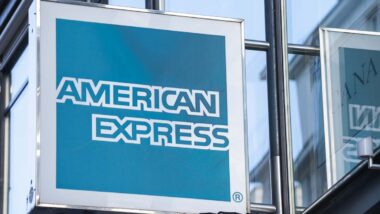Top Class Actions’s website and social media posts use affiliate links. If you make a purchase using such links, we may receive a commission, but it will not result in any additional charges to you. Please review our Affiliate Link Disclosure for more information.
Prior to Jan. 21, 2015, home loans insured by the Federal Housing Administration (FHA) came with certain stipulations when it came to interest that still accrued after the loan was paid off.
These mortgage payoff fees as well as just regular monthly interest on the loan accrued until the next payment installment date, regardless of when it was received during the given month.
According to Investopedia, if an FHA home loan had a payment due date of the tenth of each month, and the entire loan was paid off on the eleventh day of a particular month, the final interest due could be calculated by the lender to include all remaining days until the tenth of the next month. These fees would have to be paid to gain title to the property.
Consumers felt like this amounted to a penalty for financial responsibility. As calculated in 2012, borrowers paid mortgage payoff fees and penalties for early home loan payments totaling close to half a million dollars.
A rule change was made by the FHA that went into effect on Jan. 21, 2015. Under the new rule, all lenders of FHA loans must calculate interest based upon the unpaid mortgage balance on the day it is received. This rule applies to all loans closing on that date and afterwards, and it’s still in effect today.
How Does an FHA Home Loan Differ From Other Home Loans?
According to Zillow, an FHA home loan differs from other home loans offered by lenders in key ways. An FHA home loan is insured by the federal government, allowing lenders to consider borrowers that may be otherwise considered risky investments—first time home buyers, or those with lower than average down payments and credit scores.
Although this insurance does provide some assurance to the lender, borrowers must often compensate on their end as well. FHA home loan borrowers often pay mortgage insurance premiums to mediate the risk. And if they have a 500-579 credit score, they are likely to be assigned a higher interest rate on their loan.
A credit score of 580 or higher will allow some borrowers to put down a miniscule down payment of 3.5 percent, while a lower score might push the bank to require a minimum of 10 percent down.
The FHA home loan was created to encourage financial institutions to take risks with consumers affected by the depression years of the 1930s. During this time, many Americans were forced to foreclose and default on mortgages through no fault of their own.
Regions Bank FHA Loans
Despite the change in FHA rules regarding mortgage payoff fees, some consumers report that many financial institutions still engage in profiteering by charging interest on prepayment through the next installment date after the loan is paid off.
This practice is now against FHA rules, but several institutions have come under the microscope on suspicion of engaging in this practice. Among them is Regions Bank—a bank with 1500 branches throughout the Midwestern and Southern states region. Having faced litigation over overdraft fees and homeowners insurance, Regions may now be charging mortgage borrowers more than they should have to pay when paying off their loans.
Update: Regions Bank
In September 2016, Regions Bank agreed to a $52.4 million settlement to resolve claims made by the United States government that the bank certified FHA mortgage loans that did not comply with standards set by the Department of Housing and Urban Development.
USA Today reports that the Alabama based financial institution agreed to the settlement after accusations from the U.S. government that the bank failed to ensure that borrowers were qualified to take out FHA loans. Additionally, the government claimed that the bank did not adequately respond when these loans were defaulted on.
Although Regions did not admit liability, the bank did admit that between January 2006 and December 2011, FHA insurance mortgage loans that did not meet HUD standards were certified. Additionally, the bank did not follow HUD’s self-reporting requirements regarding fraud and other loan deficiencies. According to the Justice Department as reported by USA Today, HUD incurred substantial losses due to Region’s actions.
Under the Department of Housing and Urban Development’s (HUD) FHA regulations, lenders are able to make insurance claims to HUD if the loan defaults.
However, because HUD is assuming this risk, they require lenders to certify that borrowers qualify for these loans. When lenders do not comply with quality control requirements, they may be subject to lawsuits from the government and other agencies.
In addition to claims by the government, Regions has also been hit with claims from consumers regarding predatory FHA loan practices. Despite federal laws dictating how and when interest charges may be applied to FHA loans, Regions bank may still be charging borrowers extra interest.
If you suspect that you were charged excessive interest when paying off your FHA loan, you may benefit from participating in a free mortgage payoff interest class action investigation.
Join a Regions Bank FHA Mortgage Class Action Lawsuit Investigation
If you had an FHA mortgage loan with Regions Bank, and you sold, refinanced or paid off your mortgage early, you may have been charged a post-payment interest fee. If so, you may be owed money.
This article is not legal advice. It is presented
for informational purposes only.
ATTORNEY ADVERTISING
Top Class Actions is a Proud Member of the American Bar Association
LEGAL INFORMATION IS NOT LEGAL ADVICE
Top Class Actions Legal Statement
©2008 – 2024 Top Class Actions® LLC
Various Trademarks held by their respective owners
This website is not intended for viewing or usage by European Union citizens.
















One thought on Regions Bank May Be Charging Mortgage Payoff Fees Beyond What the FHA Allows
I had a FHA’s loan with regions 2015 and paid it off early in 2016